8
January, Cua Tung
Thanh Phat Hotel 200,000VND
The
Geneva Accord of 1954 confirmed Indochina’s (Laos, Vietnam and Cambodia) independence
from French colonial rule and split Vietnam into north and south at the 17th
parallel. The Accord mandated unification of Vietnam on the basis of
internationally supervised free elections to be held in July 1956. Neither
South Vietnam nor the US signed the Accord leading to the Vietnam war, called
the American war in Vietnam. On our hired autocycle we visited two war sites
today: the Vinh Moc tunnels and the Ben Hai river.
The
demilitarized zone (DMZ) separating the two Vietnams extended 5km either side
of the Ben Hai which flows into the South China Sea at Cua Tung. Wikipedia: “At
the time of the partition, the principal north-south road (Highway 1) crossed
the Bến Hải River over Hien Luong Bridge (also known as the “Peace Bridge”), a
beam bridge built from steel by the French in 1950. After the partition, the
northern portion of the bridge was painted red and the southern portion yellow.
The bridge was damaged by American bombardment during the Vietnam War in 1967.
After the Paris Peace Accords, a modern bridge was built next to the old
bridge.”
The
villagers of Vinh Moc supplied food and armaments to the North Vietnamese
garrison on the island of Con Co from which US planes on their way to bomb
Hanoi were harassed. Vinh Moc was subjected to intense bombing, therefore, forcing
the villagers to construct and move into underground tunnels. The tunnel
complex, built on three levels to a depth of 23 metres, included storage and
meeting rooms, tiny family “rooms”, wells, ventilation shafts, kitchens, and
more. The tunnels explain much about why the Vietnamese in the end succeeded
against their considerably more powerful opponents.
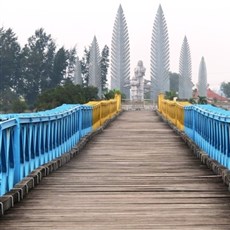
Ben Hai river bridge
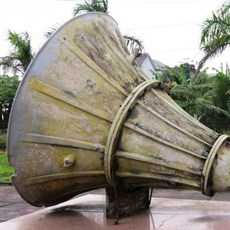
Large loudspeakers used to blast propaganda into south Vietnam
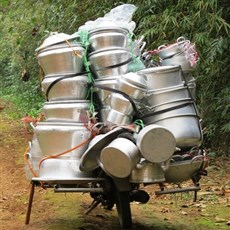
At Vinh Moc
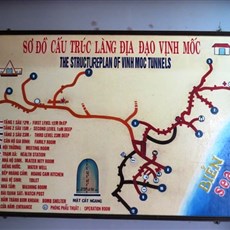
Vinh Moc tunnel plans
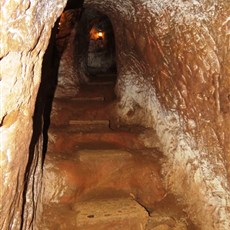
Vinh Moc tunnels
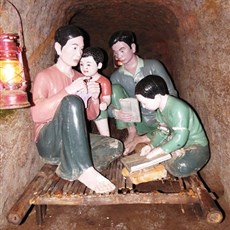
Vinh Moc tunnels - family room
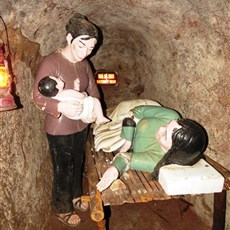
Vinh Moc tunnels - 17 babies born underground